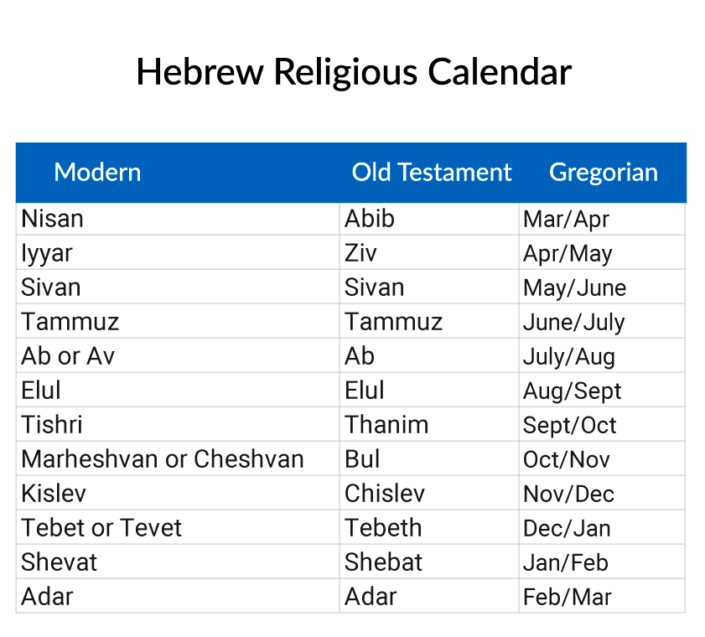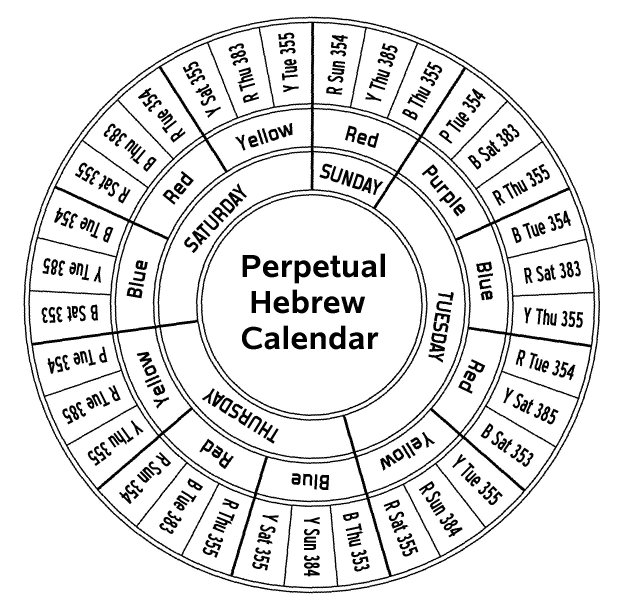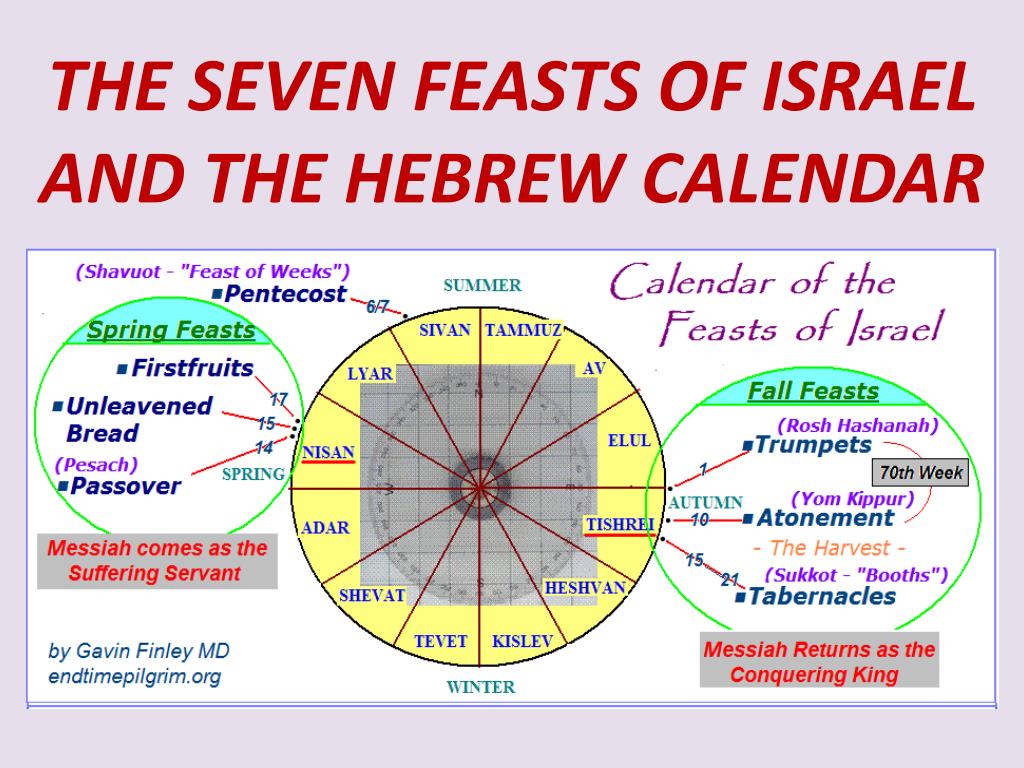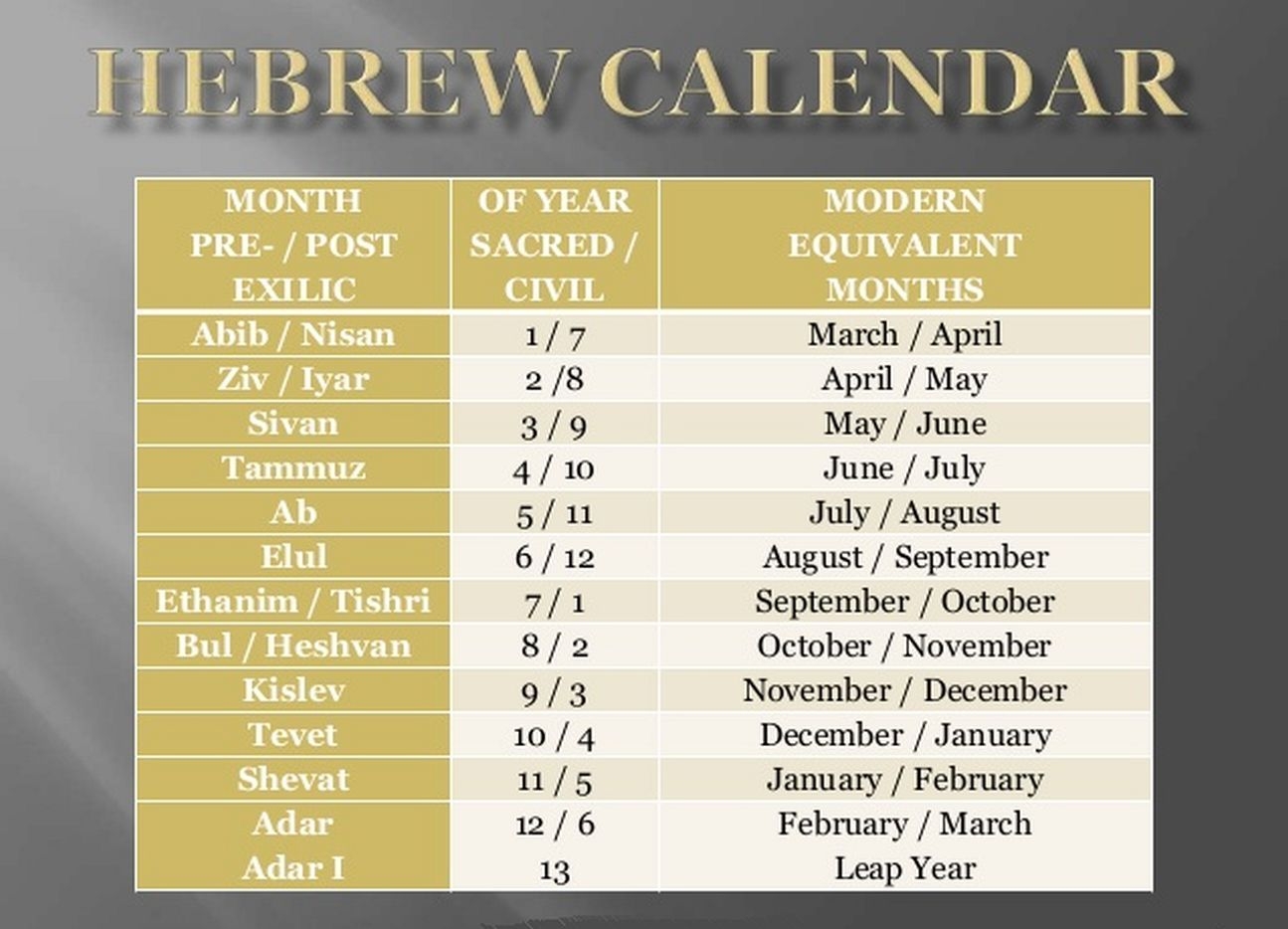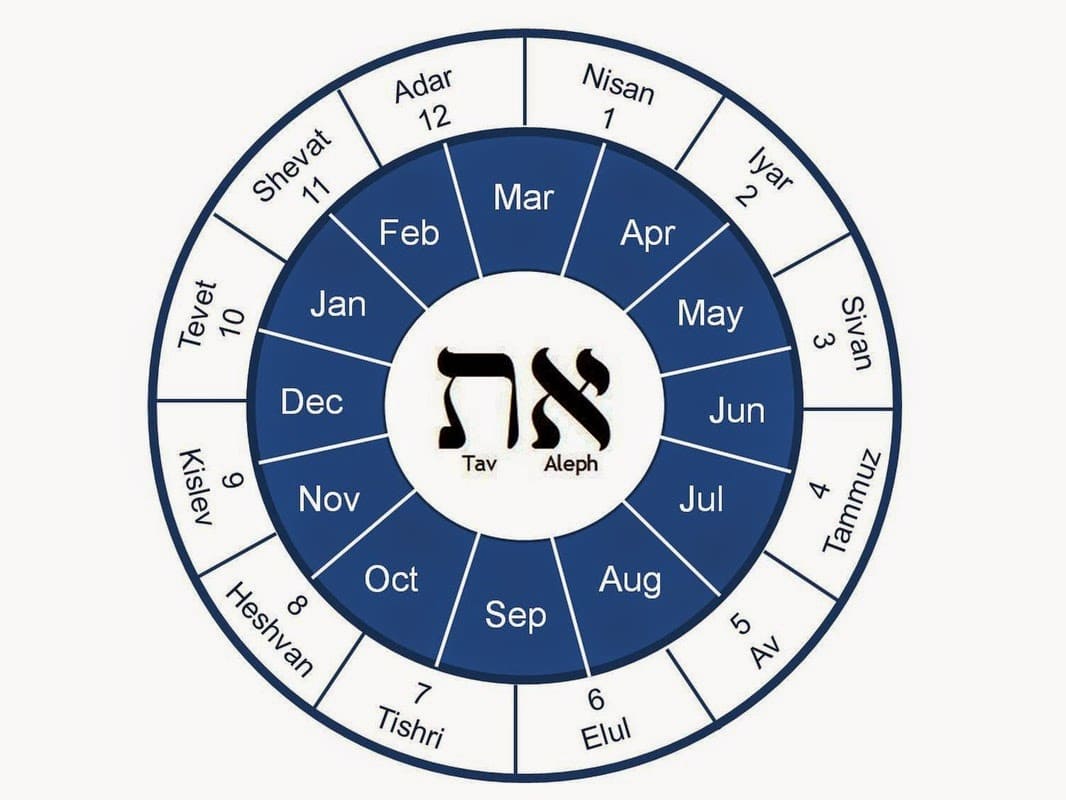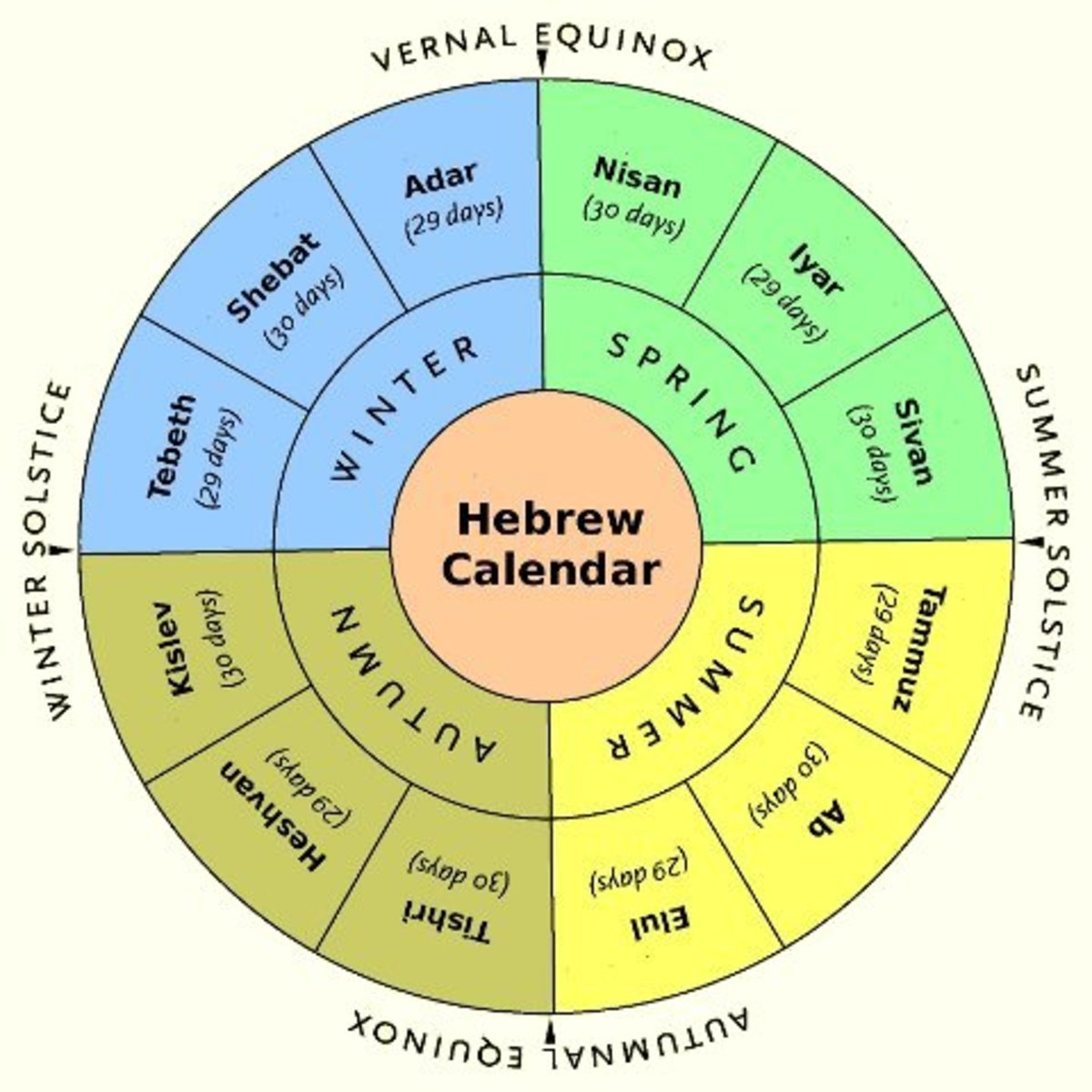Beginning Of Jewish Calendar - Every month is either 29 or 30 days long, beginning (and ending) on a special day known as rosh chodesh (“the head of the month”). How has it changed over time? The first month of the jewish calendar is the month of nissan, in the spring, when passover occurs. However, the jewish new year is in. As we enter the first month, we take a deeper look at the jewish calendar: As a result, the jewish calendar is one day longer over approximately every 216 years. This causes a calendar drift where the holidays and seasons.
Every month is either 29 or 30 days long, beginning (and ending) on a special day known as rosh chodesh (“the head of the month”). This causes a calendar drift where the holidays and seasons. However, the jewish new year is in. As we enter the first month, we take a deeper look at the jewish calendar: The first month of the jewish calendar is the month of nissan, in the spring, when passover occurs. As a result, the jewish calendar is one day longer over approximately every 216 years. How has it changed over time?
This causes a calendar drift where the holidays and seasons. The first month of the jewish calendar is the month of nissan, in the spring, when passover occurs. How has it changed over time? However, the jewish new year is in. Every month is either 29 or 30 days long, beginning (and ending) on a special day known as rosh chodesh (“the head of the month”). As we enter the first month, we take a deeper look at the jewish calendar: As a result, the jewish calendar is one day longer over approximately every 216 years.
Hebrew Calendar Abib Jessi Lucille
Every month is either 29 or 30 days long, beginning (and ending) on a special day known as rosh chodesh (“the head of the month”). The first month of the jewish calendar is the month of nissan, in the spring, when passover occurs. As a result, the jewish calendar is one day longer over approximately every 216 years. This causes.
First Day Of Hebrew Calendar Lorie Raynell
Every month is either 29 or 30 days long, beginning (and ending) on a special day known as rosh chodesh (“the head of the month”). As we enter the first month, we take a deeper look at the jewish calendar: How has it changed over time? However, the jewish new year is in. This causes a calendar drift where the.
First Day Of Hebrew Calendar Lorie Raynell
As a result, the jewish calendar is one day longer over approximately every 216 years. How has it changed over time? The first month of the jewish calendar is the month of nissan, in the spring, when passover occurs. However, the jewish new year is in. Every month is either 29 or 30 days long, beginning (and ending) on a.
Seventh Month In Hebrew Calendar Printable And Enjoyable Learning
However, the jewish new year is in. As a result, the jewish calendar is one day longer over approximately every 216 years. Every month is either 29 or 30 days long, beginning (and ending) on a special day known as rosh chodesh (“the head of the month”). The first month of the jewish calendar is the month of nissan, in.
What Is The 7th Month Of The Hebrew Calendar Eliza Sylvia
Every month is either 29 or 30 days long, beginning (and ending) on a special day known as rosh chodesh (“the head of the month”). How has it changed over time? As we enter the first month, we take a deeper look at the jewish calendar: The first month of the jewish calendar is the month of nissan, in the.
First Month Of The Jewish Calendar Biddie Lizabeth
However, the jewish new year is in. How has it changed over time? As we enter the first month, we take a deeper look at the jewish calendar: Every month is either 29 or 30 days long, beginning (and ending) on a special day known as rosh chodesh (“the head of the month”). This causes a calendar drift where the.
Printable Jewish Calendar First Month Free download and print for you.
However, the jewish new year is in. This causes a calendar drift where the holidays and seasons. As we enter the first month, we take a deeper look at the jewish calendar: How has it changed over time? As a result, the jewish calendar is one day longer over approximately every 216 years.
How To Read The Jewish Calendar Ursa Alexine
The first month of the jewish calendar is the month of nissan, in the spring, when passover occurs. However, the jewish new year is in. Every month is either 29 or 30 days long, beginning (and ending) on a special day known as rosh chodesh (“the head of the month”). As a result, the jewish calendar is one day longer.
All about the Jewish Calendar
As we enter the first month, we take a deeper look at the jewish calendar: As a result, the jewish calendar is one day longer over approximately every 216 years. However, the jewish new year is in. How has it changed over time? Every month is either 29 or 30 days long, beginning (and ending) on a special day known.
Hebrew Calendar Day Ibbie
As we enter the first month, we take a deeper look at the jewish calendar: This causes a calendar drift where the holidays and seasons. How has it changed over time? The first month of the jewish calendar is the month of nissan, in the spring, when passover occurs. Every month is either 29 or 30 days long, beginning (and.
However, The Jewish New Year Is In.
As a result, the jewish calendar is one day longer over approximately every 216 years. This causes a calendar drift where the holidays and seasons. How has it changed over time? As we enter the first month, we take a deeper look at the jewish calendar:
The First Month Of The Jewish Calendar Is The Month Of Nissan, In The Spring, When Passover Occurs.
Every month is either 29 or 30 days long, beginning (and ending) on a special day known as rosh chodesh (“the head of the month”).
